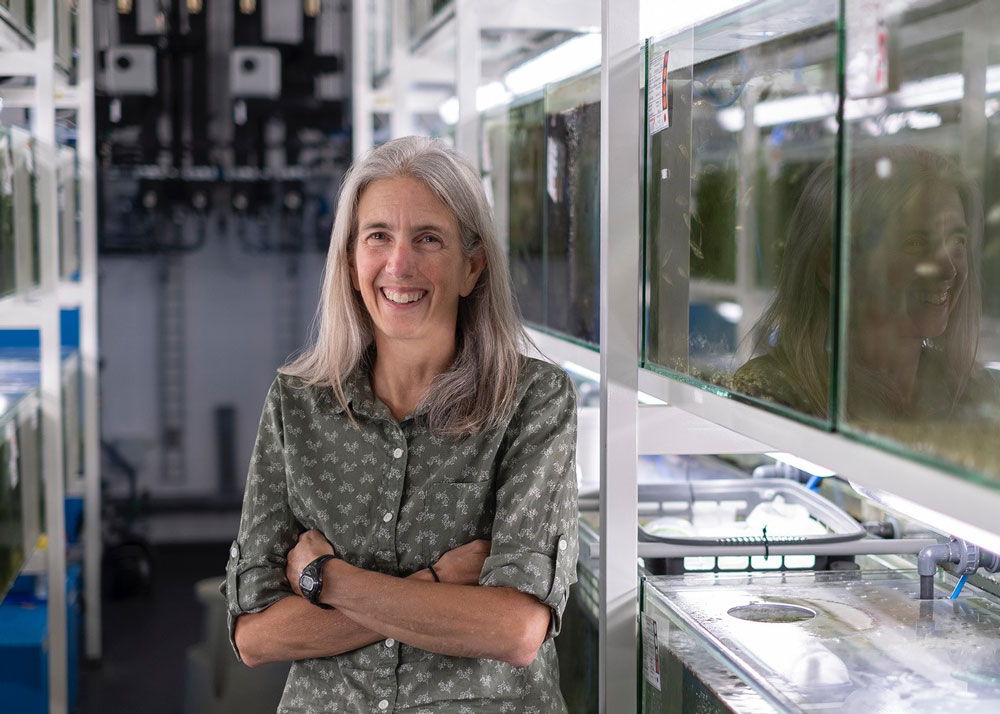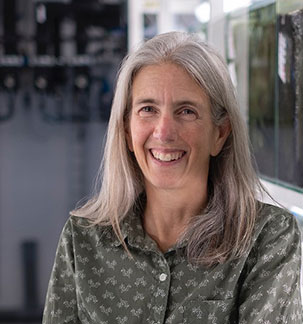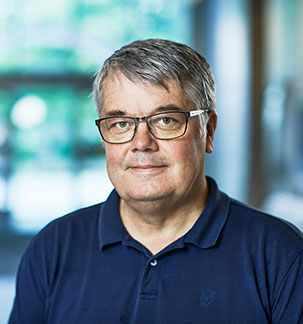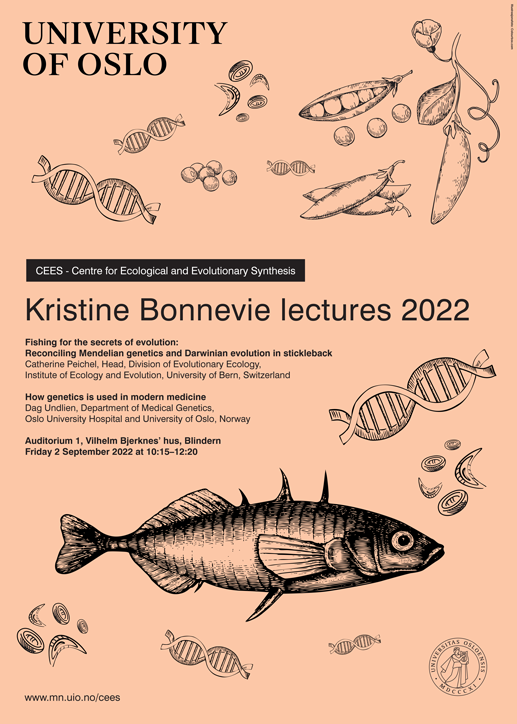
PROGRAMME
10.15-10.30. Opening remarks
Svein Stølen, Rector, University of Oslo
10.30-11.15. Fishing for the secrets of evolution: reconciling Mendelian genetics and Darwinian evolution in stickleback
Professor Catherine (Katie) Peichel, Head, Division of Evolutionary Ecology, Institute of Ecology and Evolution, University of Bern, Switzerland
11.15-11.35: Q&A
Chaired by Nils Chr. Stenseth, University of Oslo
11.35-11.55. How genetics is used in modern medicine
Professor Dag Undlien, Department of Medical Genetics, Oslo University Hospital and University of Oslo, Norway
11.55-12.15. Q&A
Chaired by Nils Chr. Stenseth, University of Oslo
12.15-12.20. Closing remarks
Kjetill S. Jakobsen, Chair of CEES, IBV, University of Oslo
BIO AND ABSTRACTS
Catherine (Katie) Peichel
Title: Fishing for the secrets of evolution: reconciling Mendelian genetics and Darwinian evolution in stickleback
Abstract
Although the reconciliation of Mendelian genetics with Darwinian evolution by natural selection occurred in the middle of the last century with the Modern Synthesis, the actual genetic changes that underlie evolutionary adaptation have remained unknown for much longer. Over the past two decades, advances in high-throughput genomic methods have revolutionized our ability to identify the genes and mutations that contribute to adaptation. I will discuss my research in threespine stickleback, which has uncovered the genetic basis of evolutionary changes in morphology, behavior, and physiology that have occurred when these small fish adapted to different marine and freshwater habitats across the Northern hemisphere. I will further discuss how these genetic studies in sticklebacks have provided answers to long-standing questions about the genetics of adaptation and revealed fundamental insights into evolutionary processes.
Biography
Professor Catherine (Katie) Peichel is originally from sunny southern California. She did her undergraduate studies at the University of California, Berkeley, where she fell in love with the power and elegance of Mendelian genetics. During her PhD at Princeton University, she applied the power of genetics to understand how organisms develop. As a postdoctoral fellow at Stanford University, she developed the threespine stickleback fish into a "supermodel" in evolutionary genetics. In 2003, she started her own lab at the Fred Hutchinson Cancer Research Center. After 13 years in rainy Seattle, she moved her lab, a dog, and 4000 sticklebacks to Switzerland to become head of the Division of Evolutionary Ecology at the University of Bern. She loves to share her knowledge of genetics and is an author on the undergraduate textbook Introduction to Genetic Analysis. Katie received a Guggenheim Fellowship in 2013 and was elected as a Member of the American Academy of Arts and Sciences in 2020.
Peichel's profile page at University of Bern.
Dag Undlien
Title: How genetics is used in modern medicine
Abstract
While Gregor Mendel unraveled the laws of heredity, the practical implications of his scientific breakthrough for patients with hereditary disorders were for a long time limited. The lack of tools to study DNA and individual genes prevented adaptation of genetics at scale in healthcare. After the Second World War there has been tremendous improvements in molecular genetics starting with the identification of DNA as the physical material of heredity in 1944, followed by Watson and Crick’s seminal discovery of the three dimensional structure of DNA molecules. In the past 20 years we have seen a disruptive technology development within the technologies to study DNA and DNA variation, in particular DNA sequencing technologies. Taken together these developments have radically changed the field of medical genetics. Today patients with hereditary diseases can get their whole genome sequenced as part of healthcare. Similarly, cancer patients increasingly get their cancer genomes sequenced. In addition to providing etiological diagnoses to patients that previously went undiagnosed, a molecular diagnosis can lead to a more precise treatment. Today, genetics has taken center stage in modern medicine as an enabler of precision medicine.
Biography
Dag Undlien is professor in medical genetics at University of Oslo and head of Department of Medical Genetics at Oslo University Hospital. He did his M.D. (1991) and PhD (1998) at University of Oslo. In 2007-8, he was a visiting professor at Johns Hopkins School of Medicine. His PhD was on genetic studies of type 1 diabetes and other autoimmune diseases. Since then his research has involved genetic and epigenetic studies of both monogenic and multifactorial diseases. He has written two popular scientific books on genetics in medicine, the most recent one being Geniale Gener (J.M. Stenersen 2015). He leads the Norwegian Consortium for Sequencing and Personalized Medicine (ww.norseq.org), a national research infrastructure for DNA Sequencing. In the past years a main focus of his has been to implement novel sequencing technologies into healthcare - translating research progress to patients' benefit.
Undlien's profile page at Oslo University Hospital.
This event is part of the University of Oslo's Annual Festivities celebrated Friday September 2nd 2022.
Open for all
The event is open for all. Pre-registration is not necessary. The event will not be streamed/filmed.
Contact
E-mail: cees-post@ibv.uio.no
Phone: (+47) 22858278
